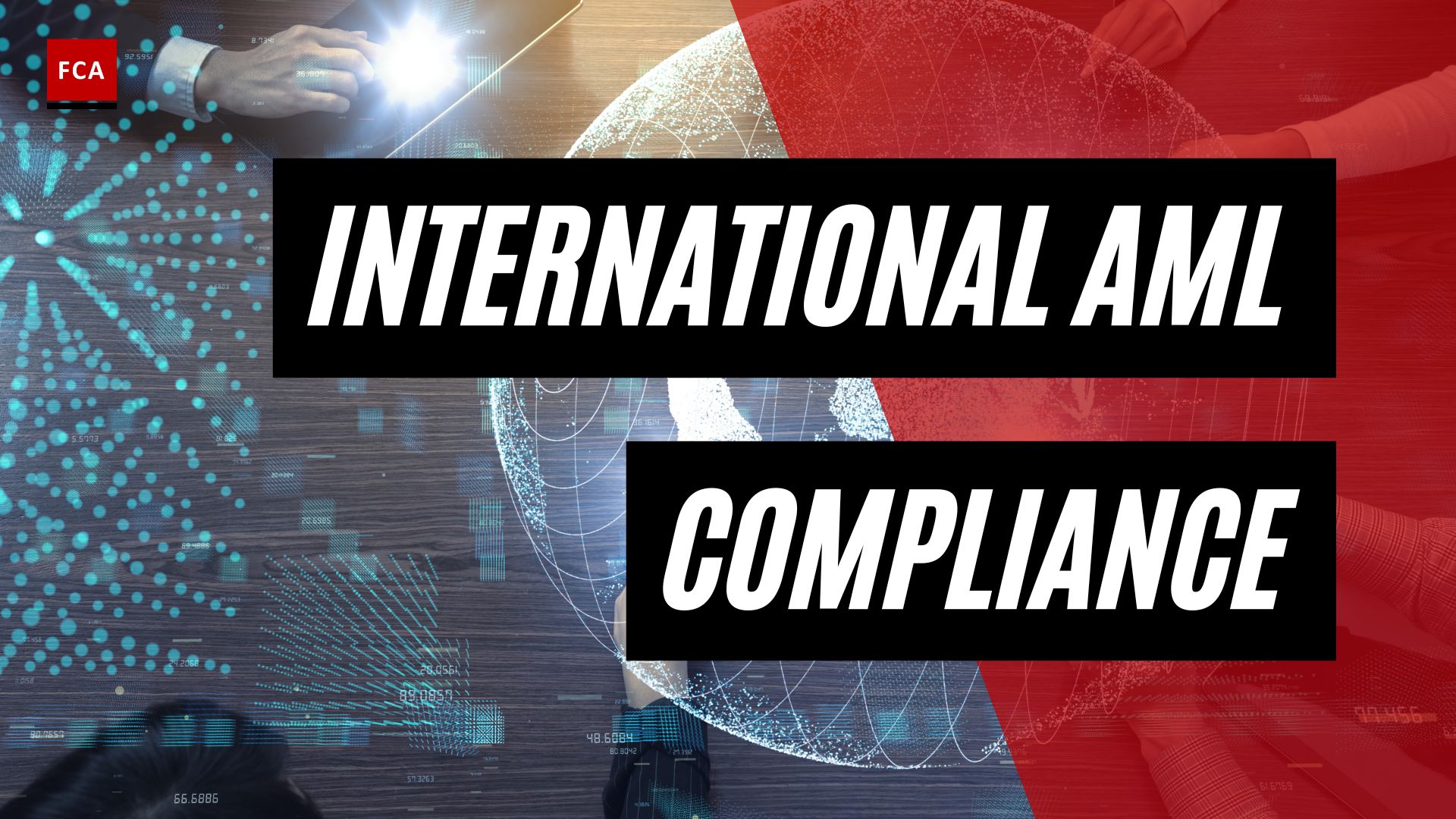AML Regulation in Cryptocurrencies
Cryptocurrencies have gained significant popularity in recent years, but they have also attracted the attention of regulatory bodies concerned about potential money laundering and illicit activities. Understanding the Anti-Money Laundering (AML) laws that apply to cryptocurrencies is crucial for individuals and organizations operating in the crypto space.
Understanding AML Laws for Crypto
The AML laws for cryptocurrencies aim to prevent money laundering, terrorist financing, and other financial crimes within the crypto industry. These laws require cryptocurrency exchanges and other virtual asset service providers (VASPs) to implement robust AML compliance programs to identify and mitigate the risks associated with illicit activities. By adhering to these regulations, crypto exchanges and VASPs contribute to maintaining the integrity of the financial system and protecting against financial crimes.
To comply with AML laws, cryptocurrency exchanges must implement various measures, such as Know Your Customer (KYC) checks, screening for sanctions and politically exposed persons (PEPs), and automating negative news checks. These measures help ensure that individuals transacting in cryptocurrencies are properly identified and monitored, reducing the risk of illicit activities.
Importance of AML Compliance in Crypto
AML compliance is of paramount importance in the crypto industry. Failing to comply with AML regulations can have severe consequences, including legal penalties, damaged reputation, and financial losses. Regulatory bodies around the world are increasingly scrutinizing cryptocurrency exchanges and VASPs to ensure they have robust AML measures in place.
By implementing AML compliance measures, crypto exchanges demonstrate their commitment to responsible and transparent operations. This not only helps protect against financial crimes but also fosters trust among users, investors, and regulatory authorities. AML compliance is crucial for the long-term sustainability and growth of the crypto industry, as it promotes a secure and compliant environment for all participants.
To achieve AML compliance, crypto exchanges should adopt a risk-based approach, continuously assess and mitigate risks, and collaborate with regulatory bodies. Implementing effective AML policies and procedures, conducting thorough due diligence on customers, and staying up-to-date with evolving regulatory requirements are essential steps in ensuring compliance and building a strong reputation within the crypto industry.
In the next sections, we will explore the specific AML compliance measures that crypto exchanges can adopt to meet regulatory obligations and address the unique challenges they face in combating financial crimes.
AML Compliance Measures for Crypto Exchanges
To ensure compliance with Anti-Money Laundering (AML) regulations, crypto exchanges need to implement specific measures. These measures include Know Your Customer (KYC) checks, screening for sanctions and politically exposed persons (PEPs), and automating negative news checks.
Know Your Customer (KYC) Checks
KYC checks are an essential component of customer due diligence for crypto exchanges in most jurisdictions. These checks aim to identify and verify clients before establishing business relations, permitting transactions, and other activities specified by law (source). By conducting thorough KYC checks, crypto exchanges can mitigate the risk of facilitating illicit activities and ensure compliance with AML regulations.
KYC checks involve verifying the identity of customers by requesting relevant information and supporting documentation. This can include government-issued identification documents, proof of address, and additional details depending on the jurisdiction and risk assessment. By leveraging automated identity verification processes, such as those offered by Persona, crypto exchanges can streamline the KYC process and enhance compliance efforts while reducing manual errors.
Screening for Sanctions and PEPs
Screening customers against global sanction and warning lists, as well as politically exposed persons (PEPs) lists, is crucial for preventing money laundering and complying with AML regulations on a global scale (Persona). These lists include individuals and entities with potential ties to illegal activities or politically sensitive positions.
To effectively screen customers, crypto exchanges need access to authoritative databases and issuing sources across various countries. By utilizing advanced screening tools, exchanges can automate the screening process and efficiently identify customers who may pose a risk. This helps prevent the onboarding of individuals or entities involved in illicit activities while complying with AML laws.
Automating Negative News Checks
Another important aspect of AML compliance for crypto exchanges is automating negative news checks. This involves scanning news articles and other sources to identify any red flags associated with an individual’s profile. Automating this process allows exchanges to efficiently identify potential risks and ensure compliance with AML laws.
By leveraging automated platforms like Persona, crypto exchanges can conduct negative news checks across millions of articles and media sources. This helps to identify any adverse information or connections related to customers that may indicate involvement in illicit activities. By automating and customizing media checks, exchanges can enhance their AML compliance efforts and prevent fraud throughout the identity lifecycle, aligning with regulatory requirements.
Implementing these AML compliance measures is essential for crypto exchanges to uphold regulatory standards and mitigate the risk of money laundering and illicit activities within the cryptocurrency ecosystem. By leveraging advanced technologies and automated processes, exchanges can streamline these measures while ensuring compliance with AML regulations.
Challenges in AML Compliance for Crypto
As the cryptocurrency industry continues to grow, so does the need for effective anti-money laundering (AML) compliance measures. However, there are several challenges that crypto exchanges face when it comes to ensuring AML compliance. Let’s explore some of these challenges in detail.
Rising Crypto Crimes and Hacks
The cryptocurrency industry has become a prime target for criminals due to its decentralized and anonymous nature. As a result, there has been a significant increase in crypto crimes and hacks. According to source, almost $2 billion was stolen in crypto through hacks by July 2022, compared to just under $1.2 billion at the same time in 2021. Money laundering through crypto has also increased, with criminals laundering $8.6 billion of cryptocurrency in 2021, up by 30% from 2020.
These rising crypto crimes and hacks pose a challenge for crypto exchanges in implementing effective AML compliance measures. It is crucial for exchanges to have robust transaction monitoring systems in place to detect suspicious activities and prevent money laundering and other illicit activities.
Regulatory Requirements and Travel Rule
Regulatory requirements for cryptocurrency companies have intensified globally as governments aim to control the industry and prevent financial crimes. The decentralized and anonymous nature of cryptocurrency transactions attracts money launderers, making the industry high-risk without proper safeguards like anti-money laundering screening. Allowing unverified transactions not only jeopardizes the reputation of cryptocurrency companies but also exposes them to fines, bans, and other severe consequences.
The Financial Action Task Force (FATF) plays a significant role in setting global standards to prevent the misuse of virtual assets. The updated FATF Recommendations now require Virtual Asset Service Providers (VASPs) and financial institutions engaged in virtual asset transfers to follow the Travel Rule. This rule mandates collecting and sharing personal data of senders and recipients in a transaction, with a proposed threshold of $1000 for virtual asset transfers. While many jurisdictions have begun passing Travel Rule legislation, implementation challenges have been noted globally.
Meeting these regulatory requirements can be complex and challenging for crypto exchanges, as they need to establish robust AML policies and procedures, adhere to customer due diligence requirements, implement transaction monitoring systems, and ensure compliance with the Travel Rule.
Decentralized Nature of Cryptocurrencies
The decentralized nature of cryptocurrencies presents a unique challenge for AML compliance. Unlike traditional financial systems, cryptocurrencies operate on decentralized networks, making it more difficult to identify and track suspicious transactions. Additionally, the anonymous nature of certain cryptocurrencies can be exploited by money launderers and other criminals.
Crypto exchanges must find ways to navigate the decentralized nature of cryptocurrencies while still implementing effective AML compliance measures. This may involve leveraging advanced technologies, such as blockchain analytics and artificial intelligence, to detect and prevent illicit activities within the crypto space.
Despite these challenges, it is crucial for crypto exchanges to prioritize AML compliance to maintain the integrity of the industry, protect their customers, and comply with regulatory requirements. By implementing robust AML policies, conducting thorough customer due diligence, and staying up to date with evolving regulations, crypto exchanges can mitigate these challenges and contribute to a safer and more secure cryptocurrency ecosystem.
Best Practices for AML Compliance in Crypto
To effectively combat financial crimes and ensure compliance in the cryptocurrency industry, companies must adhere to best practices that align with regulatory requirements. By implementing a risk-based approach, conducting continuous risk assessments, and collaborating with regulatory bodies, crypto firms can establish robust AML compliance frameworks.
Risk-Based Approach
A risk-based approach is a fundamental principle in AML compliance for the crypto industry. It involves assessing the potential risks associated with each customer, transaction, and activity. By categorizing risk levels, companies can allocate resources and implement appropriate measures to mitigate the identified risks.
This approach allows crypto firms to focus their efforts on high-risk customers and transactions, ensuring that enhanced due diligence measures are applied when necessary. Additionally, it enables companies to tailor their AML strategies based on the specific risks they face, providing a more targeted and effective compliance framework.
Continuous Risk Assessments
As the cryptocurrency landscape evolves, so do the risks associated with financial crimes. Therefore, continuous risk assessments are crucial for staying ahead of emerging threats and adapting compliance measures accordingly. By regularly evaluating their risk exposure, crypto firms can identify new vulnerabilities, assess the effectiveness of existing controls, and make necessary adjustments to their AML programs.
Continuous risk assessments should encompass both internal and external factors. Internally, companies should evaluate their systems, processes, and customer data to identify any potential weaknesses or areas for improvement. Externally, they should stay informed about regulatory developments, industry trends, and emerging typologies of financial crimes in the crypto sector.
Collaboration with Regulatory Bodies
Collaboration with regulatory bodies is paramount for crypto firms to navigate the evolving AML landscape effectively. Regulatory bodies, such as the Financial Action Task Force (FATF), play a crucial role in developing AML regulations for the crypto industry, ensuring consistency and coherence across different jurisdictions. By engaging with these bodies, crypto firms can stay informed about regulatory updates, contribute to policy discussions, and gain insights into evolving compliance expectations.
Furthermore, collaborating with regulatory bodies allows crypto firms to demonstrate their commitment to compliance and build trust with stakeholders. It provides an opportunity to seek guidance, clarify regulatory requirements, and participate in industry-wide initiatives aimed at combating financial crimes in the cryptocurrency space.
By adopting a risk-based approach, conducting continuous risk assessments, and collaborating with regulatory bodies, crypto firms can establish effective AML compliance frameworks. These best practices not only help mitigate the risks associated with financial crimes but also contribute to creating a safer and more transparent environment for organizations and individuals operating in the cryptocurrency industry.








